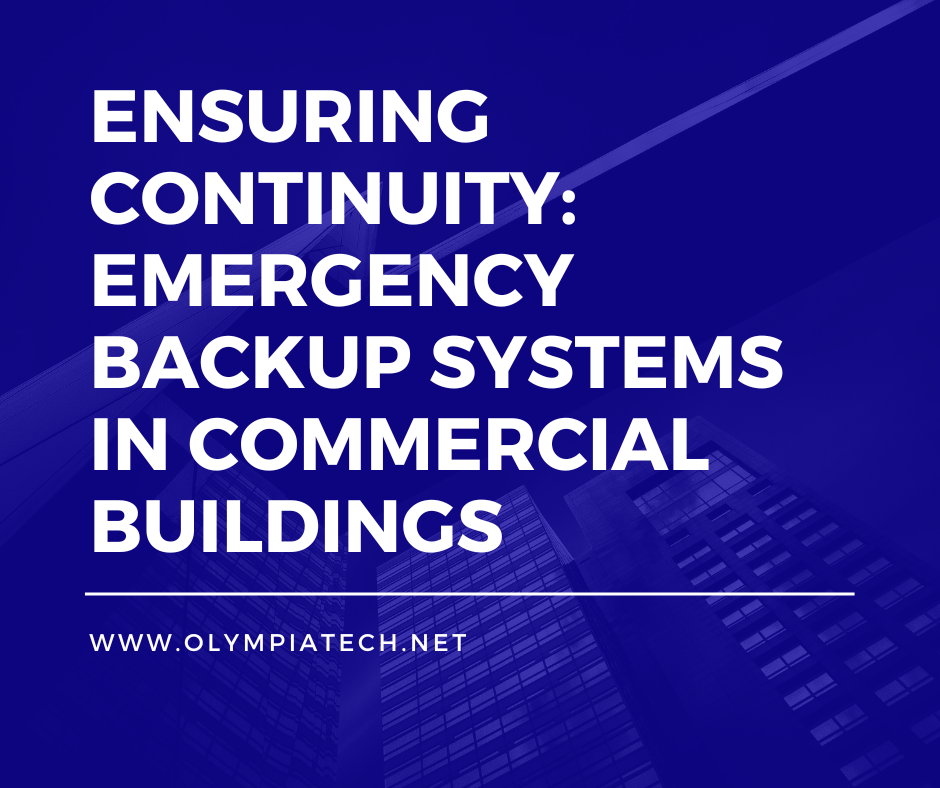
In commercial construction and building management, ensuring continuity of operations is very important. From unexpected power outages to natural disasters, disruptions can occur at any moment, posing significant challenges to business operations and occupant safety. That’s where emergency backup systems come into play, serving as lifelines during times of crisis and safeguarding against costly downtime. These systems are essential for both commercial construction projects and existing buildings.
Protecting Investments in Construction
During the construction phase of commercial projects, reliable power is essential for powering tools, equipment, and temporary lighting. However, construction sites are often vulnerable to power disruptions caused by accidents, grid failures, or adverse weather conditions. Emergency backup systems, such as portable generators or temporary power distribution units, provide a reliable source of electricity, enabling construction activities to proceed without interruption. By minimizing downtime and delays, these systems help contractors stay on schedule and within budget, ultimately protecting investments and ensuring timely project completion.
Safeguarding Occupants and Assets
In established commercial buildings, the stakes are even higher when it comes to maintaining uninterrupted power supply. Power outages can not only disrupt business operations but also compromise critical systems such as lighting, HVAC, and security. Emergency backup systems, including standby generators and uninterruptible power supply (UPS) units, play a vital role in safeguarding occupants and assets during emergencies. By automatically activating in the event of a power failure, these systems ensure that essential functions continue to operate seamlessly, allowing businesses to minimize disruptions and maintain productivity.
Meeting Regulatory Requirements
In many areas, commercial buildings are required to have emergency backup systems in place to comply with building codes and regulations. These requirements are designed to protect public safety and ensure that buildings remain operational during emergencies. Failure to meet regulatory standards can result in fines, legal liabilities, and reputational damage for building owners and managers. By investing in robust emergency backup systems, stakeholders can demonstrate their commitment to safety and compliance while mitigating potential risks and liabilities.
Enhancing Resilience and Reliability
In today’s business environment, resilience and reliability are critical attributes. Emergency backup systems bolster the resilience of buildings by providing redundancy and backup power capabilities, thereby minimizing the impact of unforeseen events on business operations. Whether it’s a brief power outage or a prolonged blackout, having reliable backup systems in place instills confidence among occupants and stakeholders, ensuring business continuity and preserving the reputation of the building.
Conclusion
Emergency backup systems are indispensable assets for both commercial construction projects and existing buildings. By providing a reliable source of backup power, these systems protect investments, safeguard occupants, and ensure compliance with regulatory requirements. Moreover, they enhance the resilience and reliability of commercial buildings, enabling businesses to weather any storm and emerge stronger in the face of adversity. As technology continues to evolve, so too will the capabilities of emergency backup systems, further reinforcing their importance in the ever-changing landscape of commercial construction and building management.

